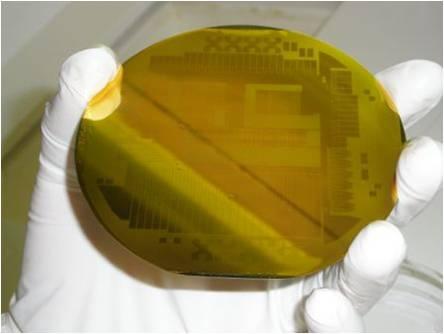As part of a national initiative, six centers for research in the nanofields have been launched in recent years at the research universities. As part of this activity, considerable sums were invested in the development of infrastructures in the fields of nano, which serve the researchers and contributed to a considerable number of technological developments and Israeli scientific breakthroughs in this field

"Opening the center for use by users from the industry is an important element in our work," emphasizes Prof. Uri Cheshnovsky, head of Tel Aviv University's Nano Center. "By actually opening the center to users from the industry, we are implementing the true potential of the infrastructure established with public support, and exposing the industry to the academic research carried out at the university. The income from users from the industry will be an important element in ensuring the activity of the center for many years, as in similar centers in the world."
Opening the laboratory to external users required organizing and building a dedicated service system. The industrial users can be trained and use the laboratory on their own, or order work through skilled process engineers. "Hiring and training process engineers for external users has contributed a lot to academic users as well," notes Prof. Yael Hanin, co-director of Tel Aviv University's Characterization and Production Center. "Nowadays even researchers without experience in micro and nano processes can order works. In fact, by opening the laboratory for industry, we significantly promoted the academic activity at the university."
At an open day recently held at Tel Aviv University, representatives of many companies were presented with the activities of the center and an open discussion was held on current and future special needs. Adi Baram, VP at IMH, a company specializing in the management and implementation of projects based on MEMS technology, who participated in the discussion, noted: "Direct availability of micro and nano equipment to the company's engineers and the service provided at Tel Aviv University is critical to the development of MEMS components. The development processes require the presence of the company's engineers while the process is running. This is an important service, the lack of which in Israel has oppressed us in recent years." Projects carried out in the laboratories today include optical components (such as photonic crystals), components for biological applications (Lab on a chip), MEMS sensors such as accelerometers as well as a variety of components for characterizing the properties of nanometer materials.
Among the center's users are many companies, including the Aerospace Industry, Elbit Systems, IMH, Mardin Technologies, Maz'ar, El Siallo, and more.
More details can be found On the website of the Center for Nanotechnology at Tel Aviv University

2 תגובות
So if it is profitable for both parties, and everyone benefits from it, why not open the other centers for industry?
Very important for the promotion of the industry.